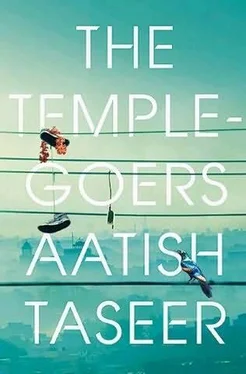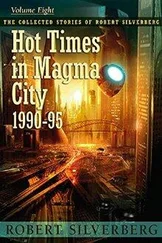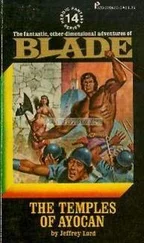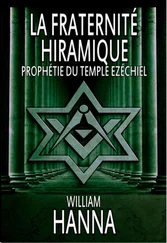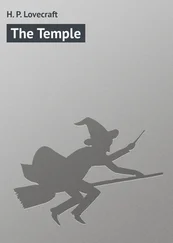He drank the beer quickly and yelled for Shakti, who appeared with another one. Aakash was enjoying this mid-afternoon revelry in the little-used flat. He poured me another glass without my asking for it. I had been under the impression that Aakash worked from five a.m. till late at night. I wondered how he’d found this block of free time in the middle of the day; I also didn’t expect a trainer to have these habits. Most of all, I was surprised at how his earlier urgency had given way to such complete repose. I asked if drinking beer damaged his physique. After taking a large gulp, he put down his glass, stood up and walked to the middle of the room. Then he removed his grey and black striped T-shirt, and standing in a grey vest, flexed his chest and triceps. His skin now seemed lighter and his physique more proportionate. Where the muscles had been expanded near the chest and the arms, there were stretch marks, pale and hairless, like knife wounds. A fine layer of hair ran over his shoulders and back, culminating in a thick chasm between the pectorals. Red and black religious threads, entwined with a single silver chain, disappeared into the chest hair.
‘I know,’ he said, ‘that if you were a businessman, you would take no interest in me.’ He glazed his eyes and made a snooty face. ‘You’d think this guy lives in Sectorpur, he drives a Hero Honda, he’s not someone I can sit down with. But because you’re a writer, you look at me and you want to dig inside, to discover what there is in this guy. Aren’t I right?’
‘Perhaps,’ I replied, embarrassed.
‘Don’t worry. You don’t have to tell me, I know. And in my lifetime itself, I’ve seen a lot of change. I’ve upgraded myself. When I was seventeen, eighteen, we were a group of three best friends. Our shoes were torn, soles coming off, we walked in the street in the heat, we took buses, we sometimes ate nothing more than a few toffees in a whole day. I remember you got two for fifty paise. The vest I worked out in had holes in it.’
He put his index finger to his thumb, indicating holes the size of one-rupee coins.
‘I wanted to be a mechanical engineer,’ he continued, ‘I got the marks for it, but my father couldn’t pay the bribe for the admission. You know, it was some seventy, eighty thousand. He said, “I’ll borrow it from somewhere. You go, just go and get your degree.” But I told him no; I’m going into fitness. I started working in one gym in Panchsheel Park, earning fifteen thousand. And slowly by slowly,’ he said, ‘I started picking up personal trainings, people liked my work, they liked that I got results, and so when Junglee opened I was hired there. I started on thirty thousand and in a year I doubled my income with personal trainings. I bought a bike, started buying good clothes. I upgraded myself. Man, and I know now for sure that if I get this one golden opportunity, I’ll never look back. There’s something in me, I know it. When I was born, our astrologer looked at my eyes and said to my mother, there’s something in his eyes. He’ll either soar or he’ll destroy himself.’
It was strange to think of the eyes, which I had thought of only in terms of beauty, as signs of providence. His ambition had also blurred into an idea of religious duty and what I thought of as vanity seemed almost like a homage to the work of fate.
‘But, you know,’ he said, ‘you might look at me and think, this guy, he’s a trainer, his father’s an auditor and that’s all: they’re low-grade people. But that’s not all we are.’
He spoke in a mixture of Hindi and English. The speed with which he recounted his personal history was startling. It was ready on his lips. He carried it around like one of the dented and blackened silver amulets he wore round his neck. He changed lenses effortlessly. One moment he was himself, striving, feeling the heat of the day and the fear of failure, the next he imagined himself as me, considering his achievement, wondering if it was something I could write about. It was as if he wanted to show me his making, show me a measure of worth different from the one that had humiliated him at the Holi party a few days before.
When he said, ‘That’s not all we are,’ I had thought he was referring to some intrinsic human worth, but he meant something entirely different.
‘My great-grandfather was a famous priest in a village in Haryana,’ he began. ‘When he was very old, he was faced with a scandal. It led to him renouncing his life and drifting down a river. He disappeared and wasn’t heard of till years later, when someone saw him in Kanyakumari.’
Kanyakumari, once Cape Comorin, was on the southernmost tip of India. It was some three thousand kilometres away.
Hoping to ground the story, I asked, ‘What form did the scandal take?’
Aakash’s eyes shone. ‘There was an army officer’s wife. She used to regard my great-grandfather very highly. She would work for him in the temple, help him with the prayers, clean the idols. Even before serving her husband, she would serve my great-grandfather. And so people in the village began talking.
‘Then one day, her husband died. But despite this she went that morning to the temple. So you can imagine, the village went wild with talk. A crowd gathered outside the temple, chanting, “Abolish these corrupt priests.” My great-grandfather heard their cries and appeared outside. Though he was heartbroken, he didn’t say anything. He just told the woman to make sure that the following day her husband’s funeral procession should pass by the temple before it went to the cremation grounds. Then he went back into the temple. The crowd was enraged, but they agreed to wait until the next day before acting.
‘The following day, as he had asked, the dead army officer’s funeral procession passed in front of the temple.’
‘Aakash, when did all of this happen?’
He looked blank, as if I had asked him a childish question. ‘Fifty to a hundred years, maybe two hundred,’ he replied, ‘maybe more.’
‘More? But he’s your great-grandfather, right? Your father’s grandfather? Were the British here?’
‘Yes, yes,’ Aakash said, ‘it was definitely the time of the British Raj. So anyway. When the procession comes by the temple, my great-grandfather appears outside, and addressing the corpse of the dead army officer, says, “Your death has disgraced your village and your community. And so I, as your priest, give you my remaining years. Rise now. I have renounced my life.” ’
The light in the flat had diminished. Aakash had smoked and drunk continuously. I stood up and turned on a few lamps. Aakash looked sombre, too moved by his own story to speak. I avoided his gaze, unsure of what to make of this afternoon visit. His conversation had included tales of forced blow jobs, social mobility and now magic. And though he himself had a hazy idea of time, his family’s history in roughly three generations mapped perfectly on to the country’s transitions: from its old religious life and priesthood, to socialism and his father’s work as an auditor, to now and Aakash.
He lay back on the sofa, still in his grey vest, his wide arms sprawling behind him.
‘Did he come back to life?’ I said in the lamp-lit softness of the room.
‘That evening!’ Aakash replied. ‘That evening he rose as if from a deep sleep, and when the people went to the temple, they found that my great-grandfather was gone.’
I wanted to ask any number of questions that would expose the story as untrue, but before I could he abruptly said, ‘You know I’m telling you all this for a reason?’
‘What reason?’
‘I want you to come somewhere with me. My family go every year to the village where all this happened. We take food and offerings. People come from all over. I want you to come with us.’
Читать дальше
